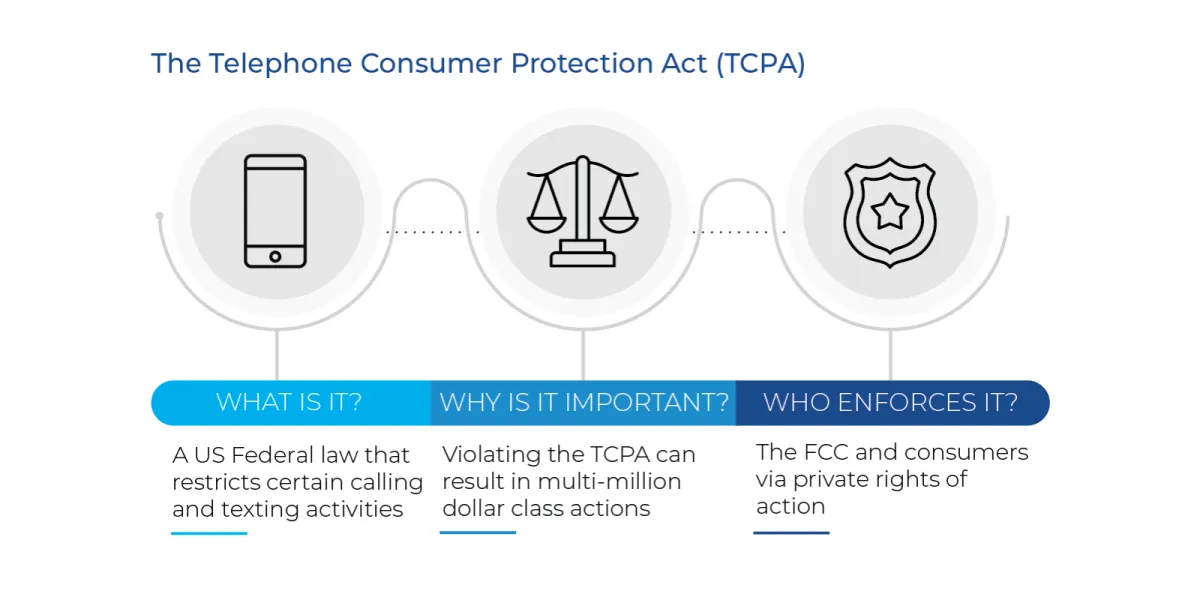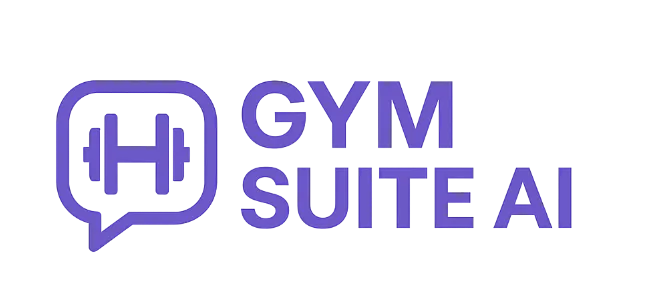Compliance
November 2025

The Future of Insurance Agency Management


.
Features
Live Real-time Support
Smart Inbox Suite
Desktop and Mobile App
Sales Management
Lead Capturing
Lead Nurturing
Integrated Calendars
Appointment Booking
CRM
Email Marketing
SMS Messaging
Team Training Portal
Insurance Website
Website & Funnel Builder
Online Review Generator
Reporting & Analytics
1-Year email Campaign
Form & Survey Builder
1-click email & texting
Payments & Invoicing
WebChat Widget
Powerdialer
Outbound calls and SMS Messages (Texts), whether for sales, telemarketing, or lead generation, are strictly regulated to protect consumers from unwanted telemarketing calls/texts (and scams). As the laws, rules, and regulations continue to evolve, it’s essential for any business that makes outbound calls and texts to stay compliant to avoid legal penalties, fines, or other forms of damage to their reputation.
This guide will help your business ensure its outbound calls and texts are in compliance with the latest laws, rules, and regulations in 2025.
Government Agencies
FCC - Federal Communications Commission
The FCC is a U.S. government agency that regulates interstate and internation communications by radio, television, wire, satellite, and cable. Their primary involvement in outbound calls and texts is for public safety and cybersecurity.
FTC - Federal Trade Commission
The FTC is an independent U.S. Federal agency that protects consumers from deceptive or unfair business practices and promotes fair competition. It enforces laws against unfair competition and fraud, conducts investigations, and educates the public and businesses about their rights and responsibilities
Rules Regarding Outbound Calls & Texts
Telemarketing Sales Rule (TSR)
TSR Compliance Telemarketers must meet the following requirements, including:
Clear Disclosures: Telemarketers must identify themselves, the company they represent, and the purpose of the call early in the conversation. Any offers made must be clearly explained without deception.
Call time Restrictions: Telemarketers may only call consumers between 8 a.m. and 9 p.m. local time.
No Calls to DNC-Listed Numbers: Consumers who have registered their number on the National Do Not Call (DNC) Registry cannot be called for sales purposes, except under specific exceptions (e.g., established business relationships).
Express Written Consent: Beginning in 2025, businesses must secure explicit written consent before calling individuals for sales purposes, especially if using automated or prerecorded messages.
Protect Consumer Privacy: You cannot Deny or Interfere with a person’s Do Not Call rights; You cannot use threats, intimidation, or profane or obscene language; You cannot misuse a Do Not Call list; You cannot cause any telephone to ring or engaging any person in telephone conversation repeatedly or continuously with intent to annoy, abuse, or harass
No Misrepresentation: In sales transactions, the TSR prohibits telemarketers from making false or misleading statements about the following: Cost and quantity; Material restrictions, limitations, or conditions; Performance, efficacy, or central characteristics; Refund, pre-purchase, or cancellation policies; Material aspects of prize promotions; Material aspects of investment opportunities; Affiliations, endorsements, or sponsorships; Credit card loss protection; Negative-option features (that a consumer will be charged unless they take an affirmative action to avoid the charges); Debt relief services

Telephone Consumer Protection Act (TCPA)
Auto Dialer - AI Voice Calling Rules (ATDS)
An Automatic Telephone Dialing System (ATDS), widely known as an “autodialer”, is defined in the TCPA as, “equipment which has the capacity: to store or produce telephone numbers to be called, using a random or sequential number generator; and to dial such numbers.”
Obtaining Consent to Utilize an ATDS: When utilizing an ATDS to place marketing calls/texts to cellphones or send prerecorded marketing messages to any phone, companies must obtain prior express written consent from consumers before contacting them. Simply obtaining a number from customers should not be confused with consent – companies still must ask for their permission before using an autodialer for sales purposes. Any type of written consent disclosure should be clear and conspicuous and include the following requirements:
Affirmative Action: The consumer should take some affirmative action to indicate his or her consent (signature, unchecked checkbox, submit button, etc).
Mandatory Disclosures: The purpose of consent to be contacted; The person is not required to provide consent as a condition of purchase;
The seller(s) to whom consent is being provided; The number at which the person consents to receive calls
Key TCPA Rules to Follow
Obtaining prior express written consent for marketing calls/texts to cellphones when those communications are initiated using an Automatic Telephone Dialing System.
Suppressing against the National Do Not Call (DNC) registry when no exemption is available
Accepting and honoring DNC requests from consumers
Ensuring a name and number is displayed on Caller ID
Placing calls/texts only during the hours of 8 AM to 9 PM, local time to the consumer
Treating texts the same as calls when utilizing an ATDS
Disclosing certain material facts, including the agent’s name, company name, and contact information
Making sure the call abandonment rate does not exceed 3% per campaign per month
Monitoring for compliance both internally and for third-party vendors
TCPA Safe Harbor
The TCPA provides a Safe Harbor that is similar to the Federal Trade Commission’s (FTC) Telemarketing Sales Rule’s Safe Harbor, but varies slightly. It outlines that an entity making telephone solicitations will not be liable for violating the TCPA if they can demonstrate that the violation is the result of an error and that the violation is not part of a routine practice. In order to claim a Safe Harbor, the following standards must be met:
Maintain written procedures to comply with the rules
Train personnel, and any entity assisting in its compliance, on these procedures. Conduct refresher training at least annually
Maintain a list of telephone numbers that the seller may not contact
Maintain a process to prevent telephone solicitations to any telephone numbers on the National DNC Registry or company-specific DNC list
Monitor for compliance with the rules on company procedures
Keep records to demonstrate compliance for at least 5 years after the last instance the record was relied upon
TCPA Consent Rules
The Different Types of TCPA Consent
Oral - Granted in-person or over the phone
Written - Signed paper or digital consent, often required for telemarketing
Implied - Based on context, such as providing a phone number during a business transaction
The TCPA doesn’t define a specific expiration date for consent. Generally, consent remains valid until:
The consumer revokes it
The phone number changes hands
The nature of the relationship shifts in a way that no longer supports the original consent
Gym Suite Compliance and System Rules
We have designed the Gym Suite system with built-in features to ensure compliance:
Our opt-in forms are updated with the latest A2P and TCPA Compliance Rules
All form submissions are timestamped and saved for a minimum of 7 years.
All form submission data can be downloaded and archived for long-term storage
All automated (Voice AI) calls are checked against the Do Not Call Registry before calling. If they are on the registry, the Contact record is updated and marked DNC immediately and they are removed from any future call workflows.
During an automated (Voice AI) call, if the users asks not to be called, the contact record is updated and the system cannot call them
Our automated call and text workflows are build with TCPA compliant wait steps to ensure calls or texts are not executed after hours
All text messages sent with A2P and TCPA compliance. If a user request for to stop or be opted out. they are removed immediately
If a user has opted in to receive ATDS Calls and Text messages, they can use any available channel to revoke their consent. Even though the TCPA guideline is 10 business days, the system will process the revocation request immediately
Once a user opts out for SMS, they receive a confirmation text and then their record is marked DND and no more messages can be sent
Our Onboarding representatives teach all Clients about the DND procedures during a zoom training shortly after sign-up
A note about aged Leads:
Many of our Clients have Leads that have been in their database for 2 years and even as old as 5 years. If they used our system, the consent submission is still documented. Clients are able to call and text there old leads as long as they have the consent on file. If they used a vendor to generate the lead, they go back to the vendor and have them provide their proof of consent.
Contact Us
If you have any questions about Compliance please contact us:
By mail: Agent Suite AI, Inc. - 5348 Vegas Drive, Suite 492, Las Vegas, NV 89108
By email: [email protected]
Copyright © 2024-2025 Gym Suite®. All rights reserved.
